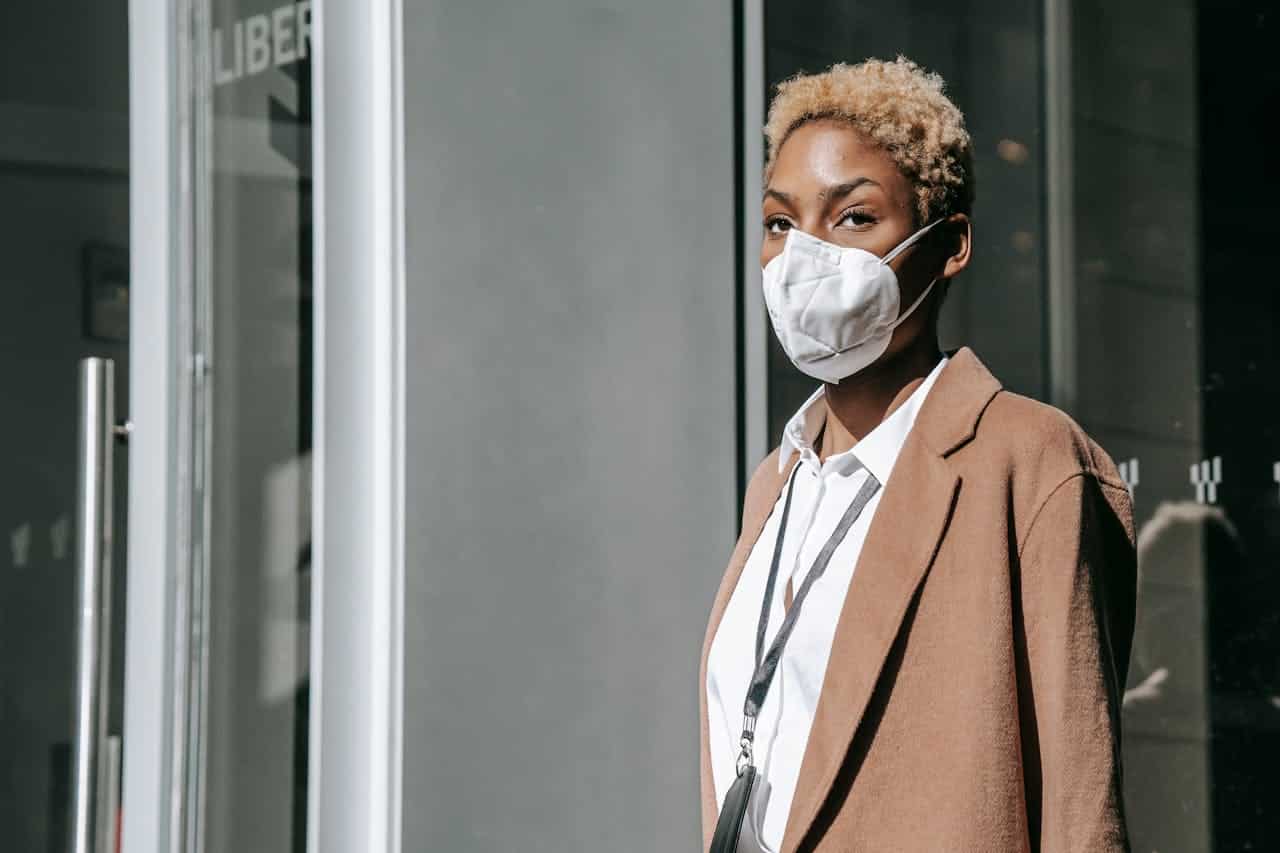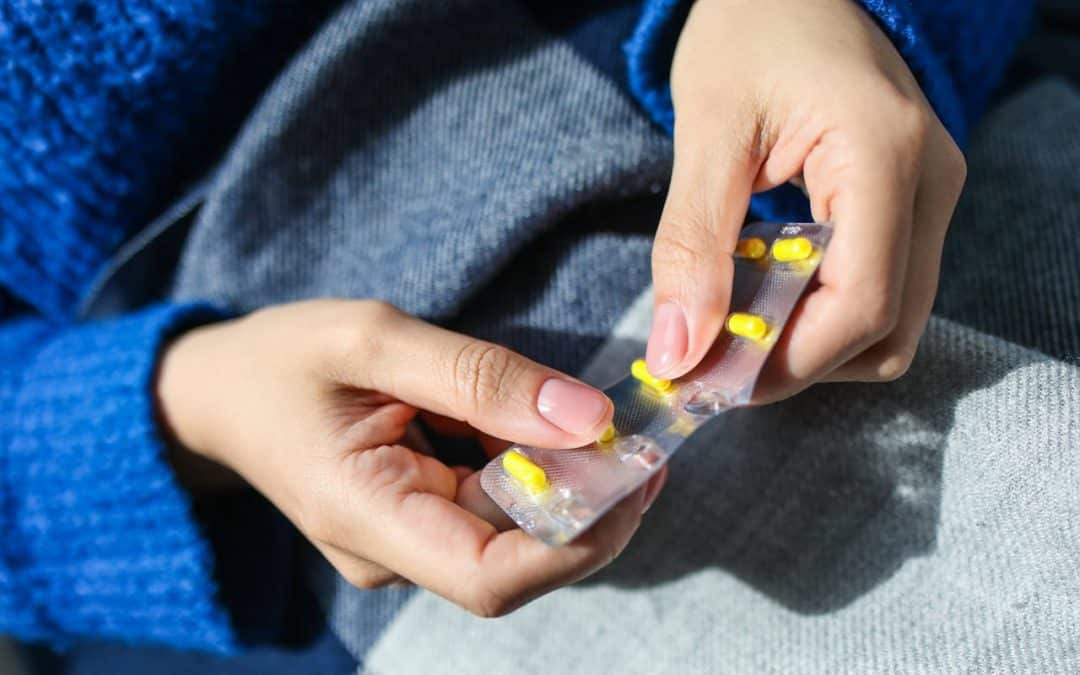Long Covid 2024 | Disability and Chronic Illness
We’re all beyond sick of Covid. Sick of talking about it, sick of thinking about it, sick of it disrupting our plans. In 2024? Really?
The pandemic has been terrible for our collective and individual mental health. Most of us were completely unprepared for the ways our lives were upended when the pandemic hit in 2020. We were forced to make hard choices — protecting ourselves from a serious threat also took a real toll on us financially, emotionally, physically, and in our relationships. We also experienced a lot of loss and grief as people we love became sick or died.
I’m not a medical doctor or a Covid expert. I’m a practicing psychologist who has been witnessing firsthand the impact that Covid is continuing to have on my clients’ physical and mental health in 2024. I’ve been supporting clients — primarily fellow millennial women — through navigating life-changing illness and disability. And I’ve had to get educated on what Covid means for people whose symptoms may take months or years to resolve.
Here’s what I’ve learned about Covid in my work so far, and what I think it’s important for all of us to know as California enters a summer surge this July.
Note: I’m focusing primarily on Long Covid in this post, as it’s what I’ve had experience seeing in my practice. But I do want to acknowledge that Covid infections remain a leading cause of death in the US. We cannot forget that many disabled and elder members of our communities remain in life threatening danger from an infection.
Covid is a systemic disease that can impact our whole body.
We’re still learning about Covid. But there is a lot that researchers do already know, and they’re learning more every day.
While Covid was initially categorized as a respiratory infection, we now know that it causes disease processes throughout our body. Some may make us obviously ill. But we’ve also seen long-term damage reflected in imaging and blood tests of people who appear to have recovered completely. The underlying harm caused by Covid infections may not be apparent on the surface.

Some of the main longer-term effects that scientists observe include:
-
- Brain: Post-infection loss of brain volume, inflammation, and a leaky blood-brain barrier.
- Cardiovascular system: Covid can damage the lining of our blood vessels and cardiovascular causing inflammation, autoimmune response and microclotting, and heart attacks.
- Gastrointestinal: Damage to the gut biome, causing a variety of GI symptoms.
- Reproductive system: Loss of fertility, changes in the menstrual cycle and worsening of premenstrual symptoms, erectile dysfunction
- Lungs: Long term damage and scarring in lungs, increasing susceptibility to pneumonia and bronchitis
- Immune system: Changes in the innate immune system cells that increase inflammatory autoimmune response; depletion of T cells in the adaptive immune system that create immune suppression
- Endocrine and metabolic systems: Dysregulation of the hypothalamo–pituitary–adrenal axis, new onset diabetes
Recent research has found that Covid may continue to live in our bodies after the acute infection has passed, hiding in viral reservoirs in our lungs, brain or GI tract.

Many people don’t realize when new symptoms are connected to a previous Covid infection.
Long Covid symptoms can develop gradually, weeks or months after we’ve already recovered from the acute phase. That means it can be hard to make the connection, especially if you aren’t aware of what symptoms to watch out for.
What’s more, a huge proportion of Covid-19 infections are mild or asymptomatic. You might have thought you had allergies or a cold, or even noticed nothing at all. But you can still develop Long Covid following a mild infection.
Common Long Covid symptoms to watch out for
Most people are aware of the common symptoms of an acute Covid infection — congestion, sore throat, body aches, fever — which often appear similar to a cold or flu. However, they may not be aware of what to look for when it comes to Long Covid. What’s more, Long Covid can present differently from person to person, and can vary in severity. But these are the most common symptoms to look out for:
-
- Brain fog and worsened cognitive function, such as difficulty finding words, a noticeable change in your ability to concentrate or think through problems, poor memory or decision making.
- Fatigue, such as needing more sleep, and finding your energy levels easily depleted by routine activity. A hallmark symptom is Post Exertional Malaise (PEM), a hangover-like ‘crash’ of exhaustion that can happen hours to 2 days after even mild physical or mental exertion.
- Heart Palpitations or suddenly racing heart
- Shortness of breath which can occur with small exertion or even at rest
- Joint and muscle pain, especially in arms and legs
- Dizziness upon standing, loss of balance
- Digestive problems like new food intolerances, upset stomach and IBS-like symptoms
Obviously, all of these symptoms can be caused by other conditions as well, including mental health conditions like depression and anxiety. The help of a Covid-aware physician can be essential to sorting out what’s happening.
Some people have reported having new physical symptoms dismissed by their physicians as psychological. If that happens to you, it may be helpful to discuss your experience with any mental health providers you’re currently working with. Your therapist or psychiatrist is more likely to recognize when new symptoms depart from your “baseline” of anxiety or mood symptoms. They may also be able to help advocate with your PCP for additional testing and evaluation.
We’re all at risk of developing long-term disease and disability from a Covid infection.
When faced with something scary, it’s only natural that we look for reasons why it probably won’t happen to us. “I’m young, I’m vaccinated, I can run a 7 minute mile, it won’t happen to me.”
And it’s true that there are factors that do increase individual risk of Long Covid. Rates are higher in women, especially women of childbearing age; transgender and bisexual individuals, and people of Hispanic or Latino heritage. Common conditions like ADHD and depression appear to increase risk, as do high blood pressure, smoking, autoimmune conditions and allergies, and type 2 diabetes.
However, unfortunately, none of us is at low risk of Long Covid.
Around 1 in 10 US adults currently report having symptoms of Long Covid, and a majority (79%) find thats it limits their activities at least somewhat. A quarter of Long Covid patients report that it limits their activities “a lot”.
In practical terms, this could mean feeling short of breath walking up the stairs or struggling with memory lapses and concentration problems. Or it could look like needing to take medical leave from work, and having difficulty going about your daily routine. For some people, Long Covid means needing a caregiver for activities of daily living, or being unable to leave their home or bed.

Unlike acute Covid infection, which is most risky for people over 65, Long Covid risk is higher for the 35-44 age group. And our kids aren’t immune either — about 6 million children in the US are currently suffering. (Despite the common narrative that kids are safe, acute Covid is also a leading cause of death for people aged 18 and under.)
In my practice, I’ve seen clients with Long Covid in their 20s through 50s with a variety of risk profiles. Some have been previously healthy and athletic, while others were living with some pre-existing conditions prior to getting sick. Some got sick prior to vaccines being available, and others were already vaccinated when they got infected.
Despite the fact that public Covid mitigations have largely wound down, the risk of Long Covid has persisted. With community spread continuing mostly unchecked, we’re likely to see a large number of Covid related disabilities for the foreseeable future.
Repeated infections come with increasing Long Covid risk.
If you’ve already had Covid once or twice and come through it ok, you may be feeling relaxed and reassured. After all that fuss, it really wasn’t a big deal at all, just like a bad cold. And you’ve thankfully recovered just fine.
It’s natural to be less on guard. However, an uneventful experience with your first or second Covid infection doesn’t mean you’re in the clear. Although we still have a lot to learn about reinfections, current evidence suggests that Long Covid risk increases with each subsequent infection. There’s also some evidence that the damage Covid does to the immune system can hamper response to a new infection for some people, making acute infections more severe over time.
With many people now contracting Covid annually or even more often, how will cumulative damage impact us in five or ten years? The jury is still out, but we have reason to be concerned. Especially as there are not yet any FDA approved treatments for Long Covid available.

Prevention is still crucial and possible.
No matter how many Covid infections you’ve had, or what your current health status is, it’s in your best interest to avoid additional infections. Keeping up to date with vaccine boosters is known to significantly reduce your chances of Long Covid, possibly by as much as 69%. (The impact is strong, but the effects wane over time, so keeping on top of the booster schedule is important.) If you haven’t had a booster within the past year, it’s time for an update.
Wearing a high quality mask indoors, especially in crowded or poorly ventilated spaces, is a low effort, high impact action you can take to reduce your personal risk. If you’re gathering without masks, choosing an outdoor setting is a lower-risk choice. (Bonus: Masking also protects the people around you, including folks who may be at a higher risk than you are.)
Keep tests on hand and use them after higher-exposure activities, and if you’re experiencing any symptoms. If you are infected, you can still take precautions to reduce your risk of developing longer-term illness. Ask your doctor if they recommend a medication such as Paxlovid or Metformin, both of which have shown some promise in reducing Long Covid risk.
The most important thing that you can do following a positive Covid test is to rest and give your body time to heal properly. We live in a culture that prizes pushing through illness, but that approach can have devastating consequences when it comes to Covid. Take any sick days you have, sleep as much as your body is asking for, and get everything non-essential off your plate. Ask for help if you can.
The need for extra rest may extend beyond the acute infection phase. If you’re returning to physical activity after recovering, pace yourself and only increase your activity slowly, as your body allows. For some common types of Long Covid, pushing through fatigue actually does serious, potentially permanent damage to our bodies. It is an important exception to the general rule that exercise supports our overall health and recovery.
Don’t live in fear. But don’t live in denial either.
A common refrain I hear these days is that showing concern about Covid is tantamount to “living in fear.” I don’t think that’s true. Using information to take sensible precautions and reduce risk is a psychologically healthy response to a potential threat, not pathological anxiety. In fact, going back to normal without a plan for keeping yourself safe might be a sign of engaging in some unhealthy denial.
Look, I get it. I’m still in denial that Firefly was canceled and that I missed my only chance to see Prince in concert. Denial’s an extremely attractive coping mechanism, especially in difficult times where it seems we have little control. But when it comes to Covid, denial is a luxury that can cost us and our loved ones dearly.
When there’s something causing my clients anxiety, we often break the situation down into “parts I can control” and “parts I can’t control.” As far as Covid goes, we can’t control the fact that there’s a serious virus that is circulating globally. We can’t control the medical options currently available to us, how our bodies might react to an infection, or how the people (and governments) around us are responding.
But we can control our own actions, how we’re protecting ourselves and our families, and the ways our actions can increase or reduce risk for others too. We can also control the steps we take to advocate for safer schools, workplaces, and communities.
Covid is here to stay for the foreseeable future, and Long Covid with it. But “learning to live with it” shouldn’t mean passively accepting huge amounts of excess death and disability, especially when there are alternatives.
Additional Resources:
Covid-Conscious Therapist Directory – Find a Covid conscious therapist in your area, across the US and internationally
Covid Meetups – A free service to find individuals, families and local businesses/services who take COVID precautions in your area
Long Covid Apps, Books and Podcasts – Database of patient resources maintained by Vanderbilt University
About the Author
Maya Borgueta, PsyD (she/her) is a clinical psychologist who specialzes in working with professional women in business and tech, with an emphasis on workplace issues, self-confidence and self-compsasion, and managing anxiety. She has a special interest in supporting BIPOC and LGBTQ+ clients, as well as adult children of immigrants throughout California. Maya is the founder of Stella Nova Psychology, which has been serving clients online throughout California throughout the Covid-19 pandemic.
Find Support for Chronic Illness in California
Looking for an safe and affirming space to focus on your mental health? Stella Nova therapists can help you with a range of concerns, from anxiety and depression, to chronic pain and illness, to navigating relationship stress.
We specialize in working with women and nonbinary professionals, and folks of all genders seeking a feminist, intersectional healing space. Our therapists work with clients throughout California remotely via secure, HIPAA-compliant video.
To get started, schedule your free, 20-minute phone consultation with our Intake Coordinator today. We’ll chat about what you’re looking for, and match you with the best therapist for your needs and preferences.


